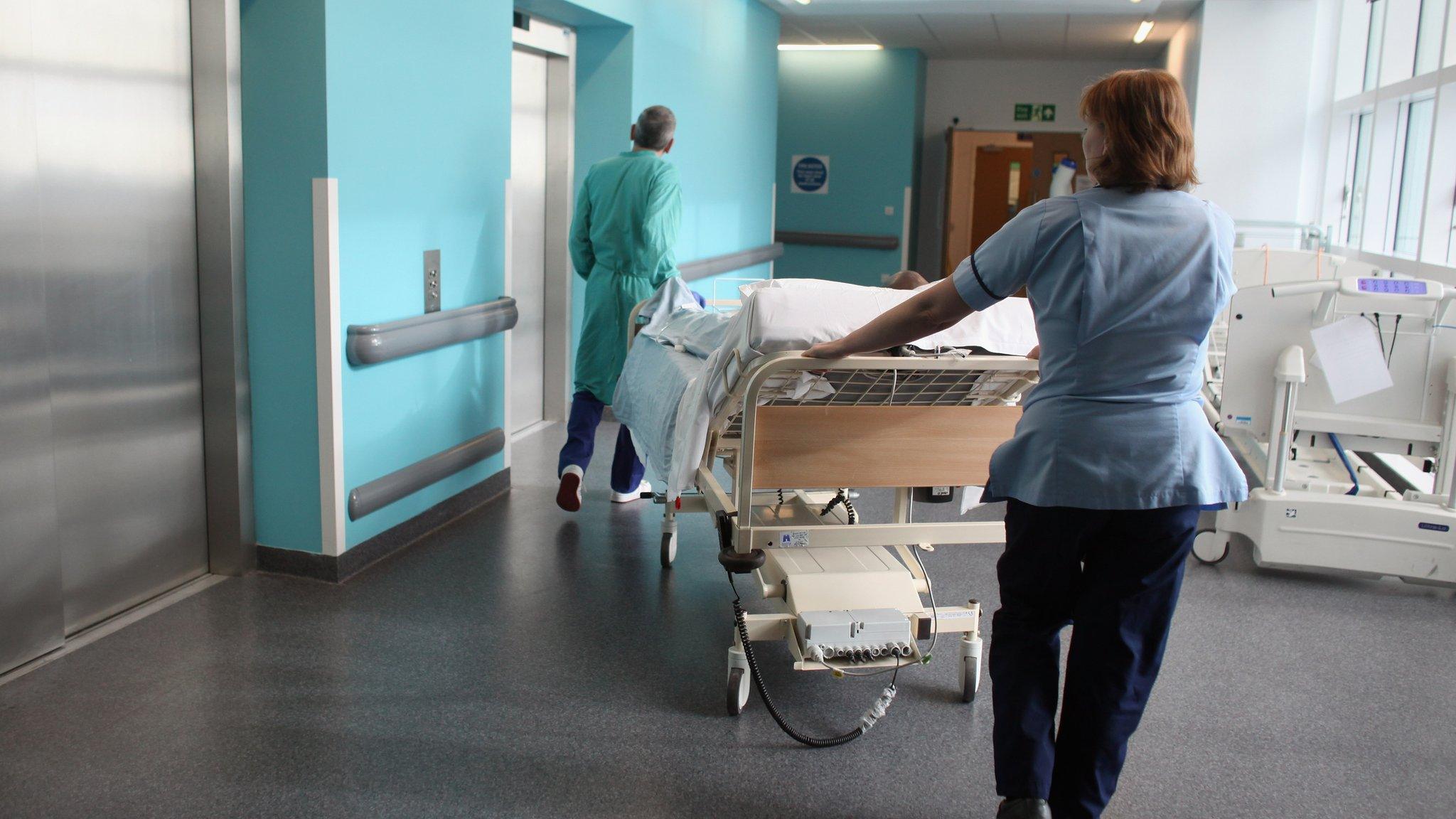NHS transformation plans: Cuts or change for better?
- Published

The process has been bubbling along beneath the radar for months.
The Sustainability and Transformation Plans (STPs) across the NHS in England have been overshadowed by controversy, with critics arguing they are part of a secret cuts agenda.
Each of 44 areas of England was asked to come up with a plan to make the best use of resources at a time of rising patient demand, with one of the main aims being to maximise the provision of care outside hospitals and closer to a patient's home.
Now an NHS leader has come out for the first time to defend the exercise.
Sir Bruce Keogh, Medical Director of NHS England, has given an exclusive interview to BBC News.
He stressed the STP process was all about meeting the needs of an ageing population with more complex conditions and making the best use of medical advances.
"That in some cases will mean offering highly specialised services in a more centralised way," he said. "In other cases will mean bringing some of those services that are currently offered in hospital much closer to home, and in some cases right into the home."

Sir Bruce Keogh has defended the STPs plan
Sir Bruce acknowledged the plans were to a certain extent a reaction to financial pressures and finite budgets.
He acknowledged there were suspicions of a hidden drive to force through cuts and "difficult choices" would be made but he tried to reassure the critics.
"I think in a number of areas, {services} will look very different. But what we have to be really careful about is that they serve the needs of patients and the local community.
"People are always up for change, but they fear loss, and I think that those who are proposing the change have a duty to explain to the local communities why those changes offer an improvement."
The STPs process has brought GPs, hospital managements, social care leaders and local community health representatives around a table.
In some areas that has never happened before with the division between the NHS and social care, run by local authorities, all too clear.
Draft plans have now been published in 43 of the 44 areas. The final one, covering Oxfordshire, Buckinghamshire and Berkshire, has been marred by local arguments and protests by campaigners who believe the hospital in Banbury will be downgraded. A summary version of this plan is due by Friday.
In some other areas the plans have included proposals to cut hospital wards.

What are STPs?

Sustainability and transformation plans are are aimed at overhauling NHS services and saving money.
Each area of the country has been asked to come up with its own plans, and so local NHS managers have divided the country into 44 "footprints".
It is all part of NHS England's five-year strategy to release £22bn of efficiency savings by 2020. As health is devolved, the plans do not affect the rest of the UK.
The 44 areas started reviewing local services in early 2016. All proposals were submitted to NHS England and NHS Improvement, and have now been published.
Consultations on major changes are expected to take place early next year, with implementation following soon after.

Some STPs are building on thinking developed in a model called Primary Care Home.
This involves an integrated group of GPs, social care providers and other NHS organisations taking full responsibility for the health needs or a local population up to 50,000.
One area where it has been on trial is Thanet, where it has become a core part of the Kent and Medway STP.
More elderly patients are looked after in their own home as GPs, therapists and the ambulance service work closely together to ensure there are not needless journeys to A&E. The longer term aim is to completely pool local NHS and council social care budgets.
So where next? NHS England expects local community leaders to engage with their populations to explain the plans.
The most joined-up versions will be finalised in the spring and billed as radical new care models .
But there is sure to be controversy over some other plans with local campaigns to stop closures or hospital downgrades.
NHS England may find it needs to take to the airwaves more often to make clear its thinking.
- Published27 November 2016

- Published17 November 2016
- Published14 November 2016

- Published26 August 2016
